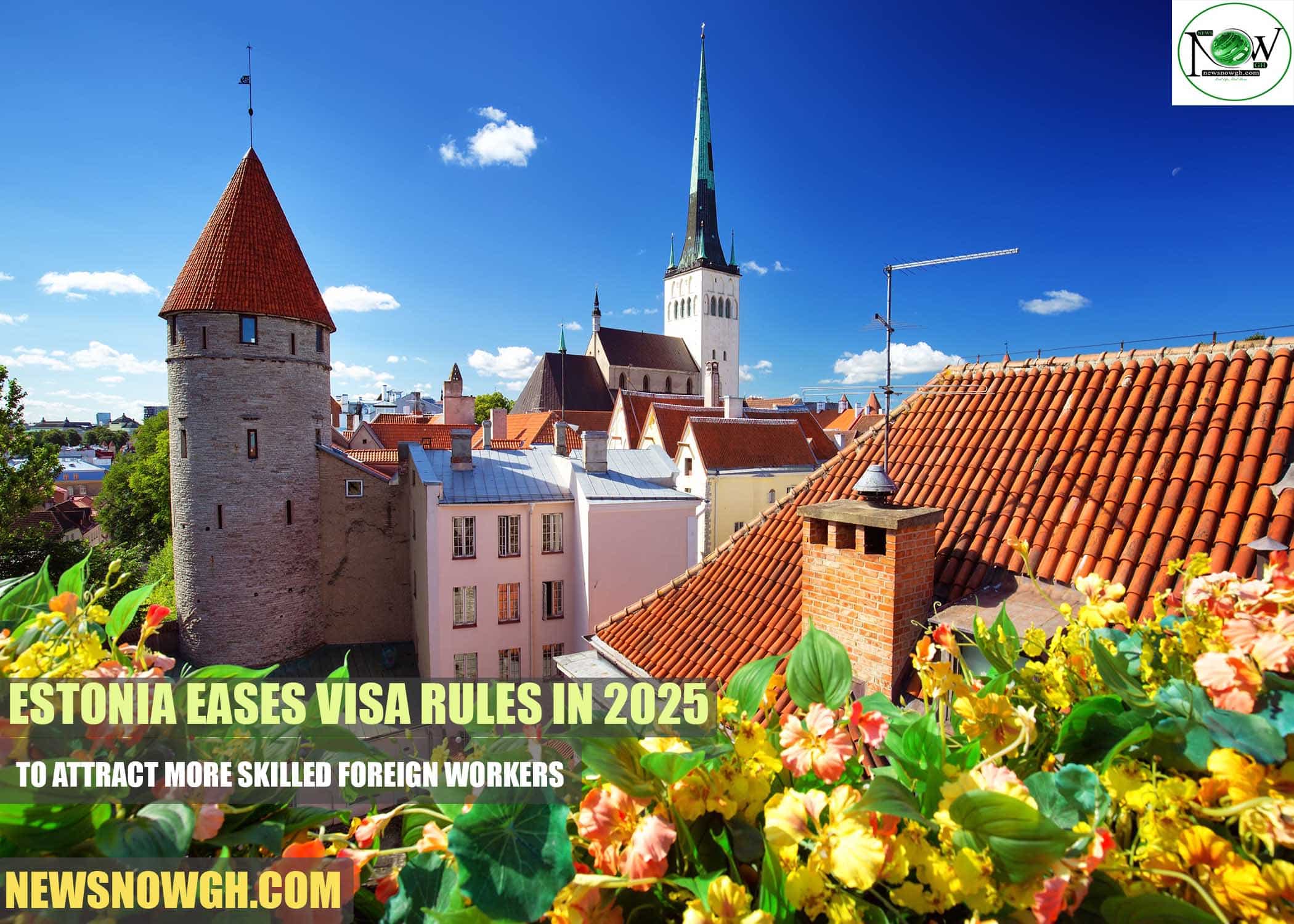Estonia Eases Visa Rules in 2025 to Attract More Skilled Foreign Workers
Estonia is making it easier for skilled foreign workers to join its workforce! Starting in 2025, the country will implement new immigration rules. These changes aim to address labour shortages and enhance Estonia’s economic growth.
Why Estonia Needs Foreign Workers
Estonia faces a significant labour shortage due to an ageing population and changing demographics. According to the OSKA report, the country needs to fill:
- 1,400 top-level specialists annually
- 700 skilled workers each year
These shortages are expected to continue over the next decade, threatening Estonia’s industrial and economic development.
Sectors Facing the Most Critical Shortages
Interior Minister Igor Taro highlights nine key sectors struggling with workforce gaps. While not all sectors are publicly listed, they include:
- Engineering and IT
- Health and social care
- Industrial manufacturing
- Construction
- Transport and logistics
These industries will receive priority for relaxed immigration processes and additional residence permits.
New Residence Permit Quotas
To tackle workforce shortages, Estonia will increase the number of residence permits available in critical sectors. Currently, the cap is up to 1,300 permits annually, with a potential increase to 2,600 permits if the economy grows by at least 2% of GDP. In 2024, Estonia failed to fill its quota, falling short by 300 permits, indicating a need for more attractive immigration pathways.
Visa Pathways for Foreign Workers in Estonia
Skilled professionals considering Estonia as a career destination will find several tailored visa options. Here are the main pathways:
1. Temporary Residence Permit for Employment
Most common visa for skilled foreign workers.
Key Requirements:
- Valid job offer from an Estonian employer.
- Salary must meet or exceed the average wage.
- Position must align with national labour market needs.
Validity: Up to 5 years, renewable.
Processing Time: Approximately 1–2 months.
2. EU Blue Card
Designed for highly qualified professionals with university degrees.
Eligibility Criteria:
- Job contract with a salary at least 1.5 times the Estonian average.
- Recognized qualifications or at least 5 years of relevant experience.
Benefits:
- Fast-track processing.
- Path to long-term residence in the EU.
- Family reunification options.
3. Short-Term Employment Registration
For seasonal or project-based work.
Key Sectors:
- Construction
- Agriculture
- Hospitality
- IT and software development.
This option allows quick entry but does not provide long-term residency.
4. Startup Visa for Tech Talent
Perfect for those working with or starting a tech startup.
Who Can Apply:
- Founders of innovative startups.
- Skilled employees of approved Estonian startups.
Perks:
- Access to Estonia’s e-Residency ecosystem.
- Easier family relocation.
5. Digital Nomad Visa (For Remote Workers)
Allows remote workers to live in Estonia while employed by a foreign company.
Eligibility:
- Proof of remote work and monthly income of at least €3,504 gross.
- Valid health insurance.
Duration: Up to 12 months, with possible extension.
Estonia Maintains Strict Background Checks
While easing entry for skilled workers, Estonia will uphold strict security measures. Interior Minister Taro emphasized that thorough background checks are essential. “No one should come to Estonia whose background or intentions are unclear,” he stated, ensuring the safety of Estonia and Europe.
Tightening Rules on Citizenship
Estonia is also reviewing citizenship policies for long-term residents. The government is considering barring foreigners with criminal records from obtaining citizenship, following trends in other EU nations.
Final Thoughts
Estonia is taking a thoughtful approach to welcome skilled foreign professionals while ensuring national security. This policy balances economic needs with social responsibility, making Estonia an increasingly attractive destination for employment and residence in Europe.
Follow NewsNowGh to stay updated on the latest information regarding work permits, visas, and visa-sponsored employment.


